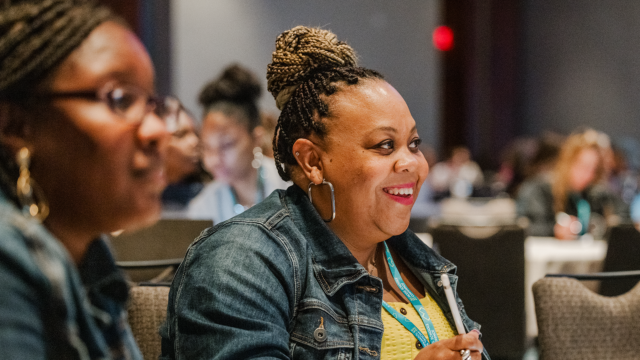
From Silicon Valley to math class, everyone these days seems to be embracing failure. Headlines repeat the likely myth that 8 out of 10 startups fail. Graphs in articles depict an 85% failure rate for new products (also a myth?). And the “fail fast, fail often” mantra pervades high-tech culture. Innovation is fraught with failure, so get on with it.
I was on the stage with Harry Potter author J.K. Rowling (and lots of other people) during her oft-cited Harvard commencement speech where she proclaimed:
…failure in life is inevitable. It is impossible to live without failing at something, unless you live so cautiously that you might as well not have lived at all—in which case, you fail by default.
The application of growth mindset and grit in education has fueled an embrace of academic mistakes. Failure is a natural part of learning, and if you’re not messing up, you’re probably not learning.
I’m also a big believer in productive failure. One of my Harvard Graduate School of Education courses, Innovation by Design, recognizes, like high-tech entrepreneurs, that flops and missteps are inevitable in the innovation process. But we have to be careful with our enthusiasm for mistakes. Without the emotional and metacognitive skills for responding appropriately to stumbles, failure can actually be devastating, leading to learning collapse rather than acceleration.
Let’s face it, failure feels bad. Get a D or an F on a test as a student. It hurts. Be observed as a teacher during a class that doesn’t go well. You’re embarrassed and feel lousy. Roll a few gutter balls at the bowling alley, and you might be ready to hang up your bowling shoes. We’d much rather get A’s, inspire all of our students, and consistently roll strikes. What’s so great about failure, anyway?
Not much…unless you learn from it.
We have to make failure productive, and that requires emotion regulation, reflective learning, and a supportive context. Here are some tips:
- Reduce the stakes. When a test is determining your grade for a course, failure has high consequences. Screwing up a lesson during your only teacher evaluation for the year, the one that determines retention, is pretty bad. And rolling gutter balls during the finals of a tournament can put an early end to a great season. These high-stakes performance moments aren’t about making mistakes; they’re about being flawless. We can still learn from these errors (as the Atlanta Falcons players will try to do after their devastating, come-from-behind Super Bowl loss to the New England Patriots), but the emotional impact can be difficult to overcome. It’s better to falter and lose during practice when everyone expects imperfection. High stakes = high anxiety, which, for some, can undermine performance and even the willingness to perform at all. Low stakes = less risk, less to lose if things don’t go well. Reduced stakes can help keep emotions, like fear of failure, in check.
- Provide immediate feedback about how to improve. You can’t get better at something without reflecting on what went right and what went awry. And you need specific steps to guide the next try. You can respond to failing a test by vowing to study harder next time. But what does “harder” mean? Maybe you need a different, more effective, way to prepare yourself for a test. When you threw that gutter ball, did you notice what was wrong with your movement? Without a way to adjust, another gutter ball is very likely. Learning from mistakes requires reflection and knowledge about what to do differently.
- Make it okay to seek help. Sometimes it’s hard to know what to do differently without asking for advice. And sometimes it’s embarrassing to ask for help because it makes you look stupid. We need to create environments where it’s safe to admit mistakes and work to correct them. In these environments your peers may still laugh when your bowling ball bounces into the next lane, but they put their arms around you, make you feel part of the group, and provide guidance to improve your next roll. And with each improvement, they’re cheering you on.
Follow this advice and, you know what, failure will still suck. But it won’t suck as bad or for as long. Failure is inevitable. Learning from it isn’t. That’s a skill we have to foster.
See how math learning is transformed for struggling students who learn to believe in the possibility of success.

















